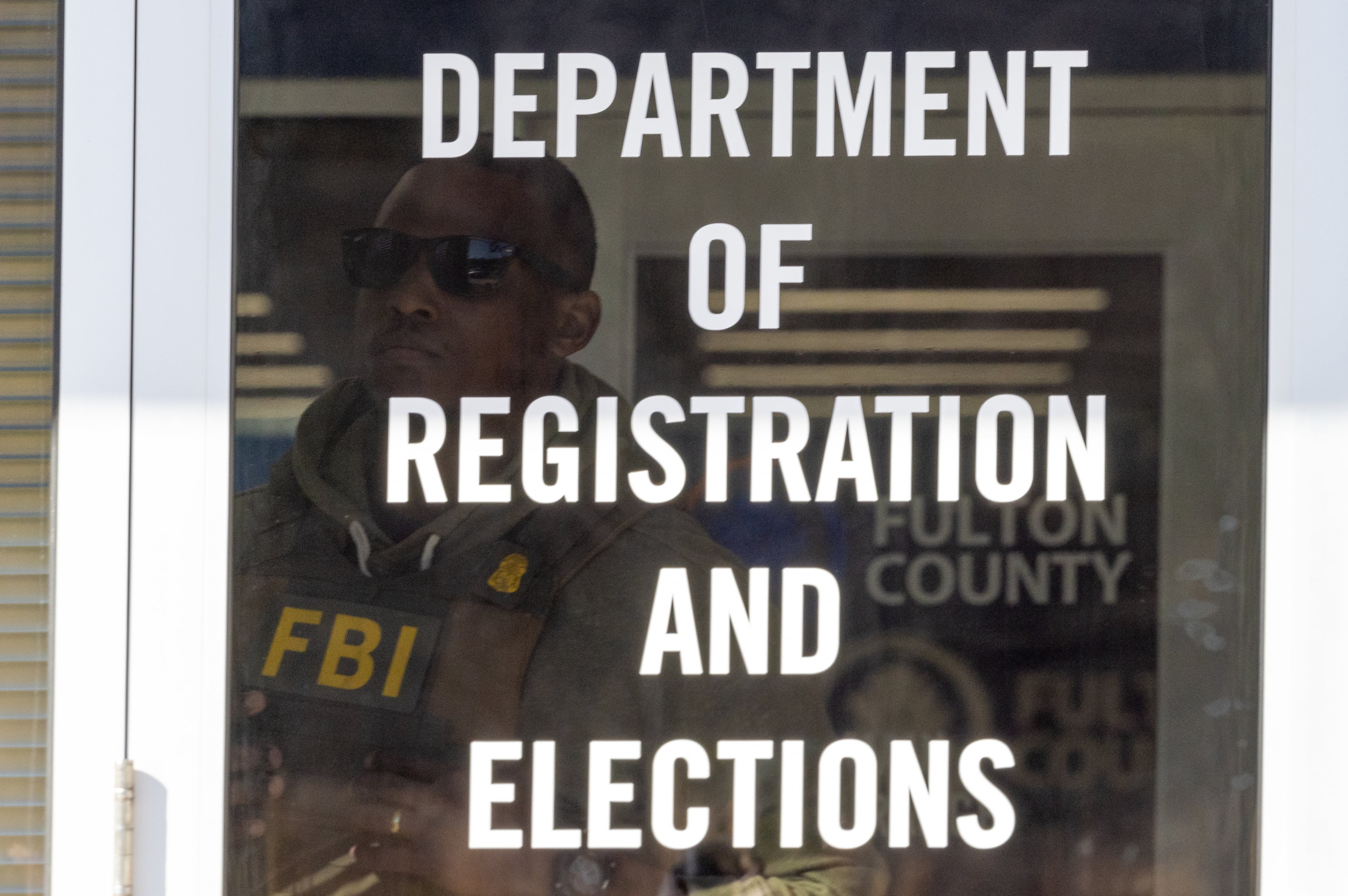The Georgia General Assembly in its own words
Here’s what lawmakers mean when they say…
A dinner, a lunch: A group meal sponsored by lobbyists.
A good bill: Commonly used by lawmakers to start debate and let colleagues know they are not, in fact, presenting a “bad bill” that will, say, destroy the environment, triple income taxes or reintroduce child labor. Example: “This is a good bill that heps the chil’ren of Georgia.” See: A li’l hep. See: For the chil’ren.
A li’l hep: Usually when a legislator asks for more money for a local program or constituent. Sometimes also used to help an industry or group pay fewer taxes. As in, “Delta’s havin’ a rough time with these high fuel prices, we need to give ‘em a li’l hep on their taxes.” Said, of course, before fuel prices plummeted.
Administration bill: A bill pushed by the governor.
Agency bill: A bill pushed by a state agency.
Amendment: A change made to a bill in committee, on the floor of one of the chambers or behind closed doors.
Appropriations: The committee that writes its chamber’s version of the budget. The House and Senate each has one.
Author: The author can be a legislator, legislative counsel, a lobbyist or special-interest association. See: Sponsor.
Big budget: The budget for the upcoming fiscal year, which runs from July 1 through June 30.
Big Feed: Any one of the several sponsored events at the Georgia Railroad Depot during the session, generally put on by cities or special-interest groups. Good, free eats for legislators and staff. The most famous is the annual Wild Hog Supper the Sunday evening before each session begins.
Called home: When a legislator “gets retired” on the “advice” of his family for having a little too much fun in Atlanta.
Catfish: Old-school term for a bill that gets gutted of any substance. Formerly know as Grooverized, in honor of the late Rep. Denmark Groover, a Macon attorney who excelled at filleting bills.
Cease all audible conversation: What the presiding officer says when he wants quiet from lawmakers, the audience in the galleries and/or unruly reporters. Generally preceded or followed by a violent slamming of the gavel.
Conference committee: A six-member committee of three House members and three senators, appointed by the House speaker and the lieutenant governor, to reconcile versions of a bill passed by both chambers.
Constitutional amendment: A proposal to change the state constitution.
Christmas tree: A bill that gets lots of other bills amended to it, generally at the end of the session. Common with tax-break legislation. See: Vehicle.
Dead: Describes a bill that is no longer viable, at least for the moment. Such legislation can be miraculously resuscitated, often by being hung on a Christmas tree. (see above)
Devotional: The sermon lawmakers get before they start business each day, usually from a Protestant preacher with a lot on his/her mind.
Doctor of the day: Local doctors who volunteer to work a day at the statehouse medical station and are introduced to legislators each day.
Engross: When lawmakers vote to keep anyone from changing a bill.
For the chil’ren: Chil’ren = Georgians under the age of consent. As in, “We need to do this for the chil’ren.” Something legislators say when they want to drive home the point that something, such as more money for education or parks, etc., will benefit children.
Fiscal note: Estimate of a bill’s cost. Often mispronounced “physical note.” Legislators are supposed to get to see fiscal notes before they vote on bills, but they often don’t.
Fiscal year: The year covered by the state’s budget, July 1 to June 30. Often mispronounced “physical year.”
Gallery: Where members of the public sit and watch the goings on.
Gentleman from, lady from: How lawmakers refer to one another in debates. As in, “The gentleman/lady from Gwinnett County (or any county) knows of what they speak.” Which isn’t always true.
Hand vote: Allows lawmakers to vote on bills without a record of how they voted (the number of hands are counted, not whose hand is raised).
Housekeeping bill: A bill that fixes small or technical problems in law. Occasionally bigger changes are slipped in when nobody is looking.
Industry bill: A bill brought by lawmakers on behalf of a particular industry, often written by lobbyists for that industry.
Init not true: Georgia version of the double negative “isn’t it not true,” used in the form of a question. Example: “Init not true that this bill will hep the chil’ren this physical year?”
Leadership: The House speaker, Senate president and the leadership team of the majority party who make the big decisions.
Little budget: The midyear spending plan for the final few months of the current fiscal year.
New information: In budget speak, it means “new information” on a particular agency’s needs has been given to leaders that persuades them to cut or add money to a program. “New information” can simply be used by lawmakers as an excuse to shift money from one priority to another, regardless of the “data” or “information.”
Not ready: As in, “That bill is not quite ready.” It usually means the bill is being held up, often as a hostage to be used in a later trade for passage of other legislation.
Friends in the hall: Also known as “people in the hall” or “folks in the hall.” Lobbyists. Example: “Our friends in the hall support this bill.” Possibly because they wrote it.
Point of personal privilege: A time when lawmakers get to talk about pretty much anything, from war to the history of bond ratings in Georgia.
PORK: Or Project of Regional Concern (PORC). Project slipped into the budget to help one area or legislator.
Recognition: When local lawmakers parade in their local football team, checkers champion or Rattlesnake Roundup queen.
Reconsideration: When a bill or amendment is brought up for another vote.
Recommit: To send a bill back to a committee. Often because it’s “not ready.”
Regents row: The area were the state’s well-known university lobbyists sit during budget negotiations, usually reserved hours before the meetings begin. Coined by the late Associated Press statehouse legend Dick Pettys.
Rules: The committee that decides whether a bill will be debated by the full chamber. Later in the session, it sets the daily calendar. Like appropriations committees, a big deal.
Sine die: Latin for adjournment without recall. On the last day of the session, the House speaker and lieutenant governor adjourn “sine die” and slam down their gavels.
Sponsor: Legislator who files a bill and generally promotes it through the legislative process.
Study committee: Where bills often go when lawmakers aren’t ready to act on them. Sometimes the bills are refined by the study committee and will come up the next year. Sometimes they are never heard from again.
Sunset: When a law or agency expires. Usually legislation or an agency about to sunset gets renewed before it dies.
Supplemental budget: See: Little Budget.
Unfunded mandate: When the federal government tells the state what to do and the state has to pay for it. Similar to when the state Legislature tells cities and counties what to do and the cities and counties have to pay for it.
Unlock the machines: What the chamber leader says before members vote on a bill. The “unlocking” allows members to have their vote registered.
Vehicle: A piece of harmless legislation used by lawmakers to carry another measure they really want to pass. The bill they want to pass gets amended onto the vehicle. See: Christmas tree.
Well: The front of House and Senate chambers where lawmakers speak on bills or amendments.



